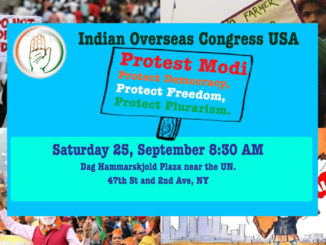
All women have to suffer the agony of menstruation but much more incessant is the dark cloud of cultural nuances that hammer us down. Poor thing is that the infiltrators of this half-believed, half-cooked knowledge are women themselves and we have no option but to comply with these myths about periods. So, here’s looking into the hell that is made of those five days of our everyday living.
We’re always on ‘that time of the month’
First of all, it’s important to understand that a woman’s menstrual cycle is not the same as her period. The actual time that a woman bleeds is known as menstruation, but her menstrual cycle is the entire time from one period starting to the next. Although it’s widely circulated that a woman’s menstrual cycle lasts 28 days, that’s only an average number. Some women’s cycles are much longer, from 29 to 35 days, while others can be shorter. Situations like travel, weight fluctuation, emotions, and medication can all affect when a woman’s period occurs, too. So, comments about how women are “always on their time of the month” aren’t appreciated.
Pain of a period is ‘just like’ anything you’ve experienced
The pain we get during a period is real. We’re not talking about headaches or bumping into sharp corners. Some of us have to take off work and curl up in bed, hoping the pinching cramps will subside because it’s that bad. This condition even has a medical name: dysmenorrhea. In fact, around 20 percent of womenTrusted Source have dysmenorrhea that’s severe enough to interfere with their daily activities. This condition affects our ability to concentrate, makes us more anxious, and can make us downright unpleasant. It’s also not anything you’ve experienced before.
It’s OK to dismiss our feelings when we’re on our period
There’s a very real physical change in a woman’s body during this time. In the days leading up to a woman’s period beginning — when she’s “PMSing” — her levels of estrogen plummet, while her levels of progesterone sharply increase. Estrogen is linked to serotonin, the “happy hormone,” and progesterone is linked to the part of the brain associated with fear, anxiety, and depression. The effects of hormones on mood are complicated, and while progesterone may depress some emotions, it has a mood-balancing effect. It may be tempting to write off seemingly drastic changes in moods as “just hormones,” but mood changes caused by hormones are still real. It may happen on a more monthly basis for us, but it doesn’t invalidate our feelings.
Hormones define women
Speaking of hormones, women have been accused of being “hormonal” for a long time. Some men have even equated our feelings to hysteria, as if it’s an illness, to explain female behavior, but news flash: Everyone has hormones, and nobody likes them to be messed with. Even men.
Just take a look at this study on male contraception, which was discontinued because participants couldn’t handle contraception’s side effects of acne, injection pain, and emotional disorders.





Be the first to comment